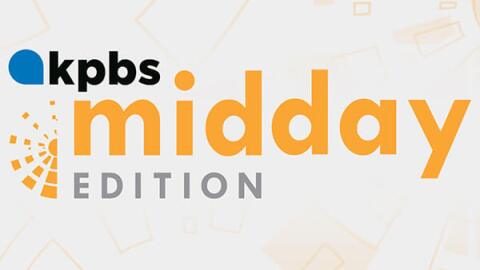Maria was having a tough time on Wednesday. The elderly Haitian woman looked like a grandmother trying to take a selfie as she awkwardly held up a borrowed cell phone with both hands.
But what Maria was trying to do was far more important than taking a selfie. She was trying to use CBP One, a new mobile app that represents the U.S. Customs and Border Protection’s (CBP) latest attempt to alleviate the migrant crisis at the southern border.
“It’s very difficult,” said Maria in broken Spanish. She did not want to share her last name.
The Biden administration unveiled the app earlier this month. Asylum seekers and other migrants without valid visas now must use it to schedule appointments and be considered for entry into the United States.
Since 2020, border officials have turned away people 2.5 million times using Title 42, a controversial policy that allows agents to turn away migrants — including asylum seekers — without a court hearing.
The Biden administration and others say CBP One is a significant step toward addressing the crisis. It allows migrants to make appointments up to two weeks and is being rolled out in eight ports of entry along the southern border, including Calexico and San Ysidro.
But immigrants’ rights activists have raised concerns about the app, and point to the problems Maria has encountered as evidence of its shortcomings.
The app, for example, is only available in English and Spanish. Maria speaks Haitian Creole. She also doesn't have internet access where she's living and her smart phone is incompatible with the app.
And the app's facial recognition technology has historically struggled to recognize dark skin tones like those of Maria, who is Black.
“We are supposed to be helping the most vulnerable people, not just those who can speak English or Spanish and are technologically savvy enough to fill out an app,” said Erika Pinheiro, litigation and policy director for Al Otro Lado, a U.S.-based immigrant rights organization.

Appointments for January are already booked. Migrants who want to schedule an appointment in February have to get up at 6 a.m., log on to the mobile app, and hope they secure a slot.
Pinheiro said the app has essentially made asylum seeking process similar to buying Taylor Swift concert tickets, because securing an appointment is largely based on the strength of one’s internet connection and luck.
“So, it works like Ticketmaster,” Pinheiro said. “When you have a concert that is going to sell out, everyone presses the button at the same time and some people get tickets and some people don’t. And that’s basically what CBP One has reduced the asylum system to.”
The first group of migrants to successfully secure appointments through the CBP One app entered the United States on Wednesday. In San Diego, roughly 200 individuals were allowed to cross the border, according to Enrique Lucero, the director of Tijuana’s Migrant Services Department.
The department is helping migrants in Tijuana use the app. They set up a Wi-Fi hotspot — the same one Maria used while trying to take her photo — and have several staff ready to guide migrants through the process.
The office even has a scale for people to weigh themselves because the app asks for users’ height and weight. Between 30 and 40 migrants show up asking for help with CBP One every day, Lucero said.
“They are all seeking asylum, they are all displaced,” Lucero said. “First they go to the border and are turned away, then they come here.”
Lucero acknowledges CBP One's obvious negatives; most notably the language and technological barriers.
But there are also positives, he said. People can sign up at home, without having to make a dangerous journey to the U.S.-Mexico border. Also, Migrants get a set date for when to enter the United States, which could make them less likely to be lured by human smugglers.
Lucero said his office has been able to help dozens of migrants create profiles on the CBP One app.
One is Cristian Valencia, a 19-year-old asylum seeker from the Mexican state of Michoacan. He fled his home seven months ago because, as an openly gay man, he faces death threats and discrimination from organized crime.
Before seeking help in Lucero’s office, Valencia tried to create a profile on his own. But the Wi-Fi at the Tijuana migrant shelter he’s staying in wasn’t strong enough.
“It keeps freezing and crashing on me,” Valencia said.
Valencia arrived at the office by 8 a.m. on a recent morning. By noon, he was set up with a profile. “They were very helpful,” he said.
Meanwhile, Maria still couldn’t get the app to recognize her face.
-
Asylum seekers are struggling to navigate a new app that's supposed to let them schedule appointments to be considered for entry into the U.S. Then, people who clean the county administration building say they are being mistreated and retaliated against by the company that employs them.
-
U.S. Customs and Border Protection released their plan this week for Friendship Park, taking community input into account, and revising a plan that caused a public outcry. But park advocates are not satisfied, and said it furthers the border wall plan set forth by former president Donald Trump. And, Imagine: You are at the grocery store, ready to check out. You put your card in the reader. It is declined. And you have no other way to pay. That is what is happening to thousands of San Diego residents who have had their EBT cards hacked and drained of funds.









